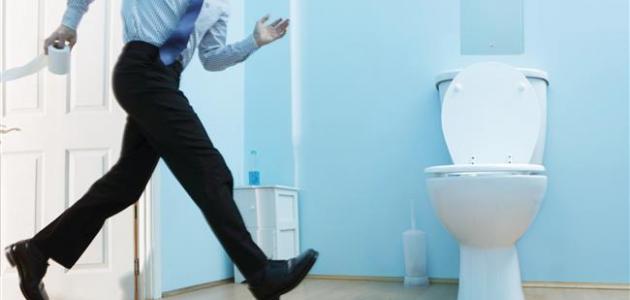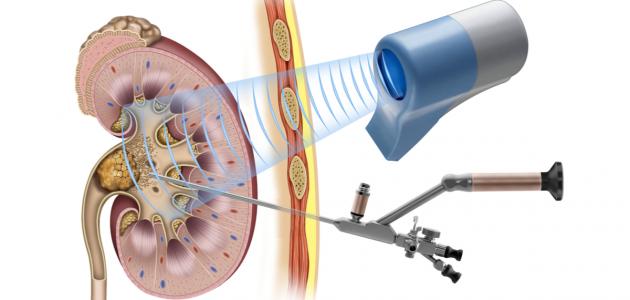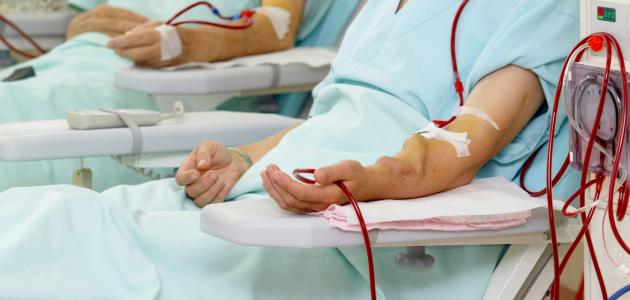Causes of frequent urination
There are many reasons that may lead to frequent urination or frequent urination, and frequent urination may occur a few times throughout life, and the appearance of many different reasons that may lead to the occurrence of this problem depends on age, gender, or perhaps both together, and it is referred to as These causes may range from being simple cases that can be easily controlled to more serious cases. Below is a detailed explanation of the causes of frequent urination:
Lifestyle-related causes
Lifestyle-related causes that lead to frequent urination include: drinking a lot of fluids, especially those containing caffeine or alcohol, and drinking a lot of water, which can be obtained indirectly from foods. The percentage of water in foods ranges between 20-30%, and it is noteworthy that the percentage is higher in drinks as well, and in turn, it may hinder a person’s ability to sleep continuously at night due to the frequent need to urinate, and the effect of drinking a lot of fluids containing caffeine, such as: coffee, appears. Tea has the ability to increase bladder activity. Which may lead to an increase in the urgent and frequent need to urinate. To avoid this, drinking fluids containing caffeine can be reduced, avoided, or even replaced with other types of drinks that do not contain caffeine. It should also be noted that frequent urination can develop into a habit or Standard behavior.
Read also:What are the causes of involuntary urination?
Urinary tract infection
Urinary tract infections (UTI) are the most common cause of frequent urination. The entry of an external infection into the urinary system may cause inflammation, knowing that the urinary system consists of the kidneys, ureters, bladder, and urethra. In fact, women are more at risk of contracting a urinary tract infection or infection than men. ; This is because the urethra in women is shorter than the urethra in men. This causes bacteria in women to travel less distance before they can infect the urinary tract and cause symptoms.
It is also noted that urinary tract infection may not be accompanied by symptoms sometimes, but if symptoms and signs appear; It may include the following:
- Urgent and constant need to urinate.
- The appearance of a strong smell of urine.
- Frequent urination with small amounts of urine coming out.
- Turbidity of urine.
- Feeling a burning sensation when urinating.
- The color of urine changes to red, light pink, or dark brown, and this is a sign of blood in the urine.
- Feeling pain in the pelvic area; Especially in women, in the middle of the pelvis and around the pubic bone area.
Read also:What is the cause of burning urine?
pregnancy
Pregnant women suffer from the problem of frequent urination, which is a normal symptom during pregnancy, and it is also one of the most common early pregnancy symptoms. These symptoms begin in the first trimester of pregnancy, specifically around the fourth week, and also increase more during the third trimester, starting around week 35. That is, in the late stages of pregnancy, this occurs due to the increase in the size of the baby inside the uterus and increased pressure on the bladder. Frequent urination during the night may also increase during this period. It is interesting that in the second trimester of pregnancy the uterus is raised upwards; Which relieves some pressure on the bladder, and it is noteworthy that this symptom disappears during the first weeks after birth. The body returns to its normal state before pregnancy.
diabetes
Excessive thirst and frequent urination are common signs and symptoms of diabetes. When suffering from diabetes, excess glucose accumulates in the body. Which forces the kidneys to work extra to filter and absorb excess glucose, and with the kidneys unable to absorb the increasing amounts of glucose; This causes excess amounts of it to be excreted in the urine, dragging with it the fluids in the tissues. This usually results in intense thirst, which causes drinking a lot of fluids. Which increases the need to urinate more.
Read also:What are the causes of pain when urinating?
Overactive bladder
Overactive bladder is a common cause of frequent urination, and is defined as feeling a sudden, urgent, frequent need to urinate. Which may be difficult to control urination at times. Frequent urination associated with overactive bladder occurs during the day and night. Overactive bladder occurs because the bladder muscles begin to contract involuntarily even when the volume of urine in the bladder is small. Which leads to feeling an urgent need to urinate, which may also cause suffering from urinary incontinence, which is the involuntary leakage or exit of urine due to the urgent need to urinate.
Taking diuretics
The use of diuretics, or what are known as water pills, leads to increased or frequent urination. These medications are used to treat high blood pressure, and liver and kidney problems. It causes the kidneys to excrete more sodium in the urine, which leads to urination more frequently than usual. However, it should be noted that these medications may cause a loss of a lot of sodium and potassium, which may lead to the appearance of side effects such as feeling dizzy, pain, and nausea. In this case, you must consult a doctor to take appropriate action regarding stopping treatment or changing the dose of the medication.
Prostate problems in men
The size of the prostate increases naturally with age. But it may cause health problems if it becomes very large, examples of which include; Benign prostatic hyperplasia (BPH), which is fairly common; An enlarged prostate may cause pressure on the urethra, known as the urethra, and prevent the flow of urine, which causes irritation of the bladder wall. The bladder begins to contract even when it contains small amounts of urine. Which leads to frequent urination, and in this case you must see a doctor to prescribe the appropriate treatment.
Interstitial cystitis
Interstitial cystitis can be defined as a chronic health problem that is part of the group of diseases known as Painful Bladder Syndrome. This health problem causes a feeling of pressure and pain in the bladder, ranging from mild discomfort to severe pain. Sometimes this may be accompanied by a feeling of pain in the pelvic area. The reason for this is that the signals that reach the brain via the nerves of the pelvic area are disturbed and mixed when suffering from interstitial cystitis. However, in a normal situation, when the bladder is full, it sends signals to the brain via the pelvic nerves and quickly What the brain responds to is stimulating the feeling of the need to urinate. This makes the person with interstitial cystitis feel the need to urinate more than usual and in small amounts of urine compared to normal.
Stroke or other neurological diseases
A stroke or other neurological disease may damage the nerves leading to the bladder. Which causes problems in its function, including a frequent and sudden urge to urinate.
other reasons
There are other causes or factors associated with the problem of frequent urination, including the following:
- Suffering from anxiety.
- The presence of a tumor or mass in the pelvic area.
- The presence of stones in the bladder or kidneys.
- Urethral stricture.
- Pelvic radiotherapy; Such as the treatment used in the event of cancer.
- Suffering from bladder cancer.
- Diverticulitis or colon diverticulitis; It is the appearance of small swollen cysts in the wall of the large intestine.
- Suffering from urinary incontinence problem.
- Having a sexually transmitted infection (STI) for short; Such as chlamydia.
- Vaginitis.
- Suffering from prolapse of the female pelvic organs through the vagina.
Reasons to see a doctor
You should see a doctor in the following cases:
- There is no clear reason for frequent urination, such as: drinking more fluids in general, alcohol, or caffeine.
- The presence of other urinary system problems or worrisome symptoms.
- Sleep disturbance or disruption of daily activities due to frequent urination.
- The presence of any of the following signs or symptoms associated with frequent urination:
- Appearance of blood in the urine.
- fever.
- Feeling pain while urinating.
- Feeling pain in the side, lower abdomen, or groin; It is the area between the thigh and the abdomen.
- Urine color changes to red or dark brown.
- Feeling a strong and urgent need to urinate.
- Difficulty urinating or difficulty emptying the bladder.
- Loss of bladder control.









